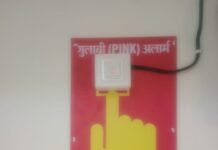 Banks where meant to keep people money save from thieves but what happen when bank itself faced the fraud and all the money which bank had is gone or its not going to come back again. yes from 2014- 2018 India faced many of cases like this where bank faced frauds which one though never going to be happen but where there are humans anything can be happen. Rounding off the year of India’s biggest banking fraud on state-run Punjab National Bank (PNB), British professional services multinational Deloitte on Sunday said such frauds will continue to rise with banks continuing to “lack a holistic anti-financial crime compliance programme”.
Banks where meant to keep people money save from thieves but what happen when bank itself faced the fraud and all the money which bank had is gone or its not going to come back again. yes from 2014- 2018 India faced many of cases like this where bank faced frauds which one though never going to be happen but where there are humans anything can be happen. Rounding off the year of India’s biggest banking fraud on state-run Punjab National Bank (PNB), British professional services multinational Deloitte on Sunday said such frauds will continue to rise with banks continuing to “lack a holistic anti-financial crime compliance programme”.
In February, PNB reported the Rs 14,000-crore fraud on it committed by accused diamantaire Nirav Modi and his uncle Mehul Choksi, both of whom have absconded overseas.
The overwhelming majority of the Deloitte survey respondents “identified the top four types of frauds experienced by them as — fraudulent documentation, cybercrime, overvaluation/ non-existence of collateral and siphoning/ diversion of funds,” it said.
Some of the key reasons identified by the respondents for the increase in fraud incidents include the use of new technology and digital channels that have made fraud detection difficult, lack of tools to identify potential red flags and business pressures to meet targets.
“Respondents appear to have a strong Fraud Risk Management (FRM) policy on paper. However, what seems to be missing is the use of technology tools, intelligence gathering, conducting regular fraud risk assessments, fraud awareness training and workshops, vendor due diligence and social network analysis,” the report said.
“In our experience, the current fraud risk management framework and processes tend to be reactive rather than proactive in the ability to detect fraud incidents, the inability to identify emerging threats and run periodic fraud risk assessments basis those findings, as well as the limited use of technology tools,” Kartik said.
About 32 percent of respondents indicated currently using artificial intelligence (AI) applications to detect fraudulent behaviour and/or to identify suspicious patterns and red flag







